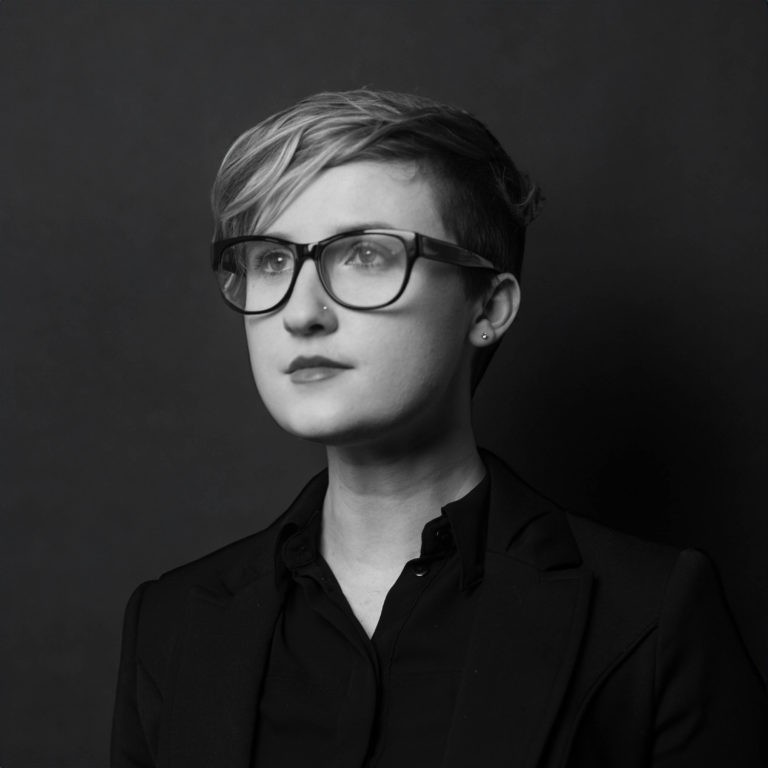Nic Cottone, a Ph.D. candidate in the Department of Philosophy at Michigan State University, was awarded the 2024 Varg-Sullivan Endowed Graduate Award for Outstanding Achievement in the Letters in recognition of her outstanding research on feminist philosophy and social theory that primarily focuses on theories of social reproductive labor and sexual violence.
The Varg-Sullivan Endowed Graduate Awards, presented by the College of Arts & Letters at Michigan State University, were established in honor of former Deans of the College of Arts & Letters, Paul Varg and Richard Sullivan, who dedicated their professional lives to excellence. Recipients of the Outstanding Achievement in the Letters Award are selected based on the best presentation at a national or international event, or the best-published article in the letters.

“The Varg-Sullivan Endowed Graduate Award is unique in that it celebrates graduate students’ dedication to academic excellence about what matters to us,” Cottone said. “In my case, that means feeling supported as I research sensitive and complex issues like social violence.”
Cottone’s paper, titled Addressing the ‘Puzzle’ of Gray Area Sexual Violations, was published in Hypatia: a Journal of Feminist Philosophy. According to Christian Lotz, Professor in the Department of Philosophy at MSU, “Nic is seen, from an academic and professional point of view, as the most advanced student in our program,” Lotz wrote in his nomination letter. “Nic’s philosophical abilities, strength of arguments, and concise style of writing usually cannot be found at this level within a typical academic trajectory.”
In Addressing the ‘Puzzle’ of Gray Area Sexual Violations, Cottone examines how feminist literature grapples with the vagueness in categorizing experiences of sexual violation and how each work, in varying ways, reinforces established categories of sexual violence that reflect hegemony. Cottone argues that the “gray area” that surrounds depictions of, and conversations around, sexual violence isn’t merely a category but, instead, is a societal condition that makes sexual violence unclear. She goes on to argue that we should examine the problems of sexual violence through a lens that considers political economy and societal context, revealing certain strands of Marxist theories that are a real philosophical contender to the prevailing feminist discourse on sexual violence in general but rape in particular.
“The Varg-Sullivan Endowed Graduate Award is unique in that it celebrates graduate students’ dedication to academic excellence about what matters to us. In my case, that means feeling supported as I research sensitive and complex issues like social violence.”
Nic Cottone
“Nic superbly handles a variety of traditions in feminist philosophy, critical theory, and the history of social-political thinking,” Lotz said. “Her command of the existing research literature and breadth of knowledge is simply unmatched.”
The paper’s publication in Hypatia, an internationally renowned journal for feminist philosophy, made Cottone nationally visible in the feminist-philosophical community. “I have no doubts that Nic will be placed in a major philosophy department in the U.S. She is an outstanding graduate student, and one of our most important community members,” Lotz said. “I cannot imagine anyone else currently in our program who is more deserving of the Varg-Sullivan Award.”
Cottone has recently received a degree completion fellowship from MSU’s Graduate School and will be finishing up her dissertation during the 2024-2025 academic year with plans to graduate with a Ph.D. in Philosophy in Spring 2025.
“I am grateful for MSU’s Department of Philosophy, especially the faculty I work with, including Megan Dean, Christian Lotz, John H. McClendon III, and Lisa Schwartzman,” Cottone said. “I have worked especially closely with Lotz (who nominated me) and Schwartzman (my dissertation chair). They have facilitated my intellectual growth and research in ways that few other departments in the U.S. could. This owes not only to their research and its influence on me, but also to their rich mentorship.”


